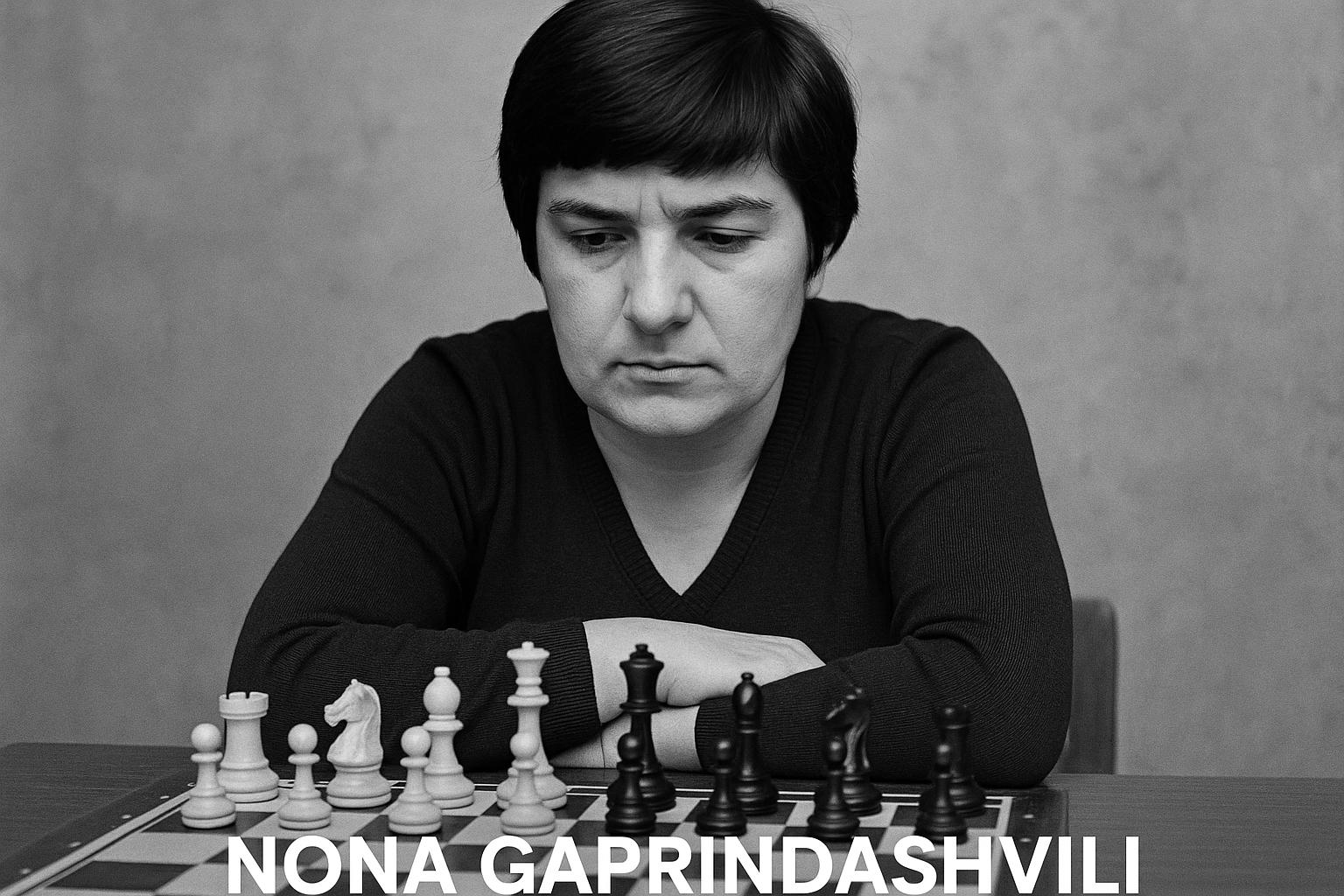Contents
Introduction
Nona Gaprindashvili is celebrated as a trailblazer in the realm of chess, renowned for her incredible achievements that positioned her as one of the greatest female chess players of all time. Born on May 3, 1941, in Zugdidi, Georgia, she broke numerous barriers in a sport that has historically been male-dominated. Her storied career has left an indelible impact on the world of chess, inspiring countless players and changing perceptions about women in competitive intellectual pursuits.
Early Life and Introduction to Chess
Gaprindashvili discovered chess at a tender age and quickly developed a profound passion for the game. At a time when chess was not just a male preserve but also an activity with limited accessibility for women, her enthusiasm and commitment were remarkable. Young Gaprindashvili showed exceptional promise and strategic thinking, skills she honed by participating in local tournaments during her teenage years. Her early exposure to competitive play laid the foundation for her future success as an international chess icon.
Rise to Prominence
Nona Gaprindashvili’s rise to the forefront of the chess world happened in the 1960s. She made significant strides on the international chess scene, especially with her participation in the Women’s World Chess Championship. In a highly competitive and landmark event in 1962, she emerged victorious, securing the title of Women’s World Chess Champion. This win not only etched her name in the annals of chess history but also made her the first woman from the Soviet Union to achieve such a feat. Gaprindashvili’s triumph was more than a personal achievement; it was a beacon of inspiration for young girls worldwide, who saw in her success a motivating example that women could excel at the highest levels of chess.
Achievements and Legacy
Gaprindashvili’s career is distinguished by a multitude of accomplishments that have set a high bar for future players. Her reign as Women’s World Chess Champion lasted through five consecutive championship titles between 1962 and 1978, a testament to her dominance and strategic brilliance. Her prowess was not confined only to women’s competitions; she also competed against and triumphed over some of the leading male players globally.
A pivotal moment in her career was in 1978 when she was awarded the title of International Grandmaster, marking her as the first woman to receive this prestigious accolade. This achievement underscored her exceptional capabilities and helped change perceptions about women’s potential in chess.
Post-Playing Career and Influence
Following her active competitive career, Gaprindashvili remained deeply engaged with the chess community. She took on roles that focused on advancing and popularizing chess on a global scale. Acting as an ambassador for chess, she committed to promoting the game, sometimes participating in initiatives that aimed to increase its accessibility in diverse communities. Her influence continues to inspire new generations, not only through her records and titles but also through the values of perseverance and equality she embodies. Her legacy is not just in her awards but also in the cultural impact she has had on the chess community.
The Chess Endowment
Nona Gaprindashvili’s legacy is further cemented through various initiatives and foundations named in her honor. These efforts are designed to encourage and support emerging talent in the chess world, ensuring the continuity of her influence. As part of these initiatives, tournaments, scholarships, and training programs are organized, all aimed at fostering diversity and inclusivity in chess. Such projects emphasize the values that she championed throughout her career, underscoring her commitment to making chess an accessible sport for all.
For those seeking more in-depth insights into her life, several chess-related publications and biographies offer comprehensive views of her influence and legacy. Interested readers can find meaningful perspectives on her contribution to the sport and her indelible mark on its history. These resources are valuable for understanding how Gaprindashvili’s pioneering efforts continue to inspire and shape the world of chess today, marking her as a significant figure not only in chess circles but also in the broader context of sports history.

